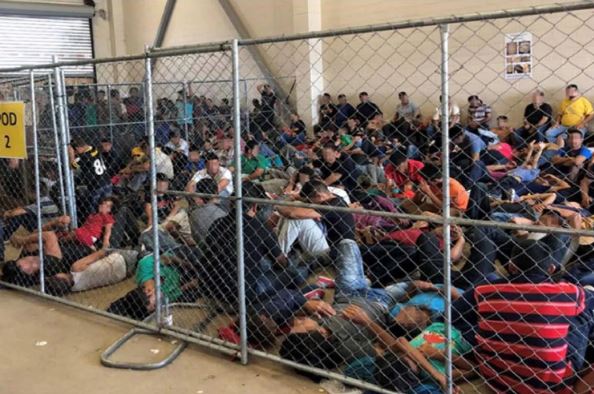Harm at the hands of ICE
January 19, 2021

“Crimes against humanity” / Thomas Cizauskas / Flickr / CC BY-NC-ND 2.0
An overcrowded, fenced area holds families in close confines at a U.S. Border Patrol station in McAllen, Texas.
Lines stretching for a city block greeted José’s group as they approached the ICE facility. José observed the surrounding area, enjoying his last few moments in the warm embrace of the sun.
As José entered the facility, the lack of color and stoic expressions worn by employees deeply unnerved him. At the moment, José perceived this to be a sign of a lack of emotion, but nothing could prepare him for the ensuing maltreatment by ICE officials over the course of the six days of his detention.
“When I came to the United States, [ICE agents] treated me very poorly. They woke up [the detainees] at 1 a.m., just to bother us, and they didn’t let us sleep much. They didn’t give us good food; they only gave us a bottle of water for the morning meal, and that was it,” José said.
Kept separated from José’s uncle, José and his cousin spent most of their days lying on the stone-cold concrete floor.
“It was a horrible experience. [ICE agents] kept you in a cell, like an animal. They kept you locked up, on the floor, and they didn’t give you anything to cover or shield yourself from the cold,” José said.
After the news of their arrival had reached the Bay Area, José’s father flew to the ICE facility and began filling out paperwork to secure the release of José, his cousin, and his uncle. The process was much more complicated than what the group had expected.
While José’s cousin and uncle were allowed to travel to California, José was transported to an orphanage in Miami to await the signing and notarization of legal documents. After a few days spent in the orphanage’s care, José boarded a plane to Northern California early in the morning. ICE agents kept a close eye on the boy, as they had throughout the entire process.
José said, “I think that [ICE agents] followed us, closely watching our movements.”
